Know If You Have Bipolar Disorder
Mental disorders are quite common in various parts of the world. Researchers from Harvard Medical School found that half of the cases of mental disorders begin at a very young age, which is 14 years and three-quarters occur since the age of 24 years.
Mental disorders themselves have many types. One of them is known as bipolar disorder.
Let’s find out more from this article, so you know if you have bipolar disorder.
Definition
What is bipolar disorder?
Bipolar disorder or also known as bipolar disorder is a mental condition that causes EXTREME mood changes. This makes people who have bipolar disorder can change their feelings suddenly from very happy (mania) to very sad (depressed).
Often, between the two changes, the patient continues to experience a normal mood condition.
When the patient feels sad, he will feel depressed, lose hope, and can even lose the desire to carry out daily activities. But when feeling happy, patients will feel very excited and passionate.
These mood changes can occur several times a year, or even a week in more severe cases.
This mental condition can cause damage to personal relationships, low motivation and productivity at work and worse can cause feelings of suicide.
Therefore, people with bipolar disorder are strongly advised to contact medical help when experiencing significant mood changes.
How common is bipolar disorder?
Bipolar disorder often appears during late adolescence or early adulthood. At least half of the cases of bipolar disorder are those who are under 25 years old.
Even so, it does not rule out this condition can also be found in children and adults. Always consult a doctor for more information.

Signs & Symptoms
What are the signs and symptoms of bipolar disorder?
When a person is affected by bipolar disorder, he will experience intense emotional feelings and occur in a certain period or known as “mood episodes”. Each mood episode shows a drastic change from the person’s normal mood and behavior.
The following is a complete explanation of the mood episode:
Mania and hypomania
Mania and hypomania are two different types of episodes, but they have the same symptoms. Mania is more severe than hypomania and causes more real problems in daily life. Mania can also trigger a psychosis condition and require hospitalization.
During manic episodes, some features, and symptoms that can arise from bipolar disorder:
- Feel too happy and excited
- Very sensitive and easily offended
- Eat a lot
- Lack of sleep
- Be rash and carry out risky activities
- Speak very quickly and change the subject from one topic to another
- Decreased ability to make an assessment or decision-making
- You can also see strange things and hear mysterious sounds.
Major depressive episode
Major depressive episodes include symptoms that are severe enough to cause difficulties in daily activities at work, school, or social activities. An episode includes five or more of the symptoms below:
- Feeling very sad and losing hope in the long run
- Loss of interest in doing daily activities
- Eat less
- Feeling sleepy and lazy
- Feel too self-conscious and inferior
- Difficult to concentrate
- Having thoughts of suicide
The episodes above can occur several times a year or even every week. Please contact a doctor if you and your loved one show the symptoms mentioned above.

Another form of bipolar disorder
Signs and symptoms of bipolar I and bipolar II disorders can include other features, such as anxiety, melancholy, psychosis, or other disorders. In addition, bipolar symptoms can occur during pregnancy or change with the seasons.
Symptoms in children and adolescents
Symptoms of bipolar disorder are difficult to find in children and adolescents. Often, the symptoms are difficult to distinguish from normal behavior. Signs of bipolar disorder in children and adolescents may be caused by trauma or stress, or are other signs of mental disorders.
Children and adolescents may have episodes of major or manic or hypomanic depression, but the pattern can be different from adults with bipolar disorder.
The most prominent signs of bipolar disorder or bipolar disorder in children and adolescents may include severe mood swings.
Also read: Recognizing Bipolar Disorder in Children and Teens
When should I see a doctor?
Apart from extreme moods, people with bipolar disorder often don’t realize how much their emotional instability is. They also may not realize how these mood swings disrupt the lives of others.
If you are like some people with bipolar disorder, you might enjoy the feelings and cycles more productively. However, this euphoria is always followed by an emotional collapse that can make you depressed, tired, and maybe get other problems.
Some things you should check with your doctor for bipolar disorder or bipolar disorder are:
- Symptoms of mood periods that occur over a long period of time
- Having thoughts of committing suicide
- Feel aggressive and confrontational
- Difficulty sleeping in a few days.

Types of bipolar disorder
What are the types of bipolar disorder?
There are several types of bipolar disorder or bipolar disorder and related disorders. These types may include mania or hypomania and depression. According to from Mayo Clinic, symptoms can cause unexpected changes in mood and behavior.
1. Bipolar I disorder
You experience at least one manic episode that can be preceded or followed by a hypomanic or major depressive episode. In some cases, manic can trigger a break from reality.
2. Bipolar II disorder
You have experienced at least one episode of major depression and at least or hypomanic episodes, but you have never experienced a manic episode.
3. Cyclothymic Disorders
You have experienced at least two years – or one year in childhood or adolescence – from many periods of hypomanic and depressive symptoms.
4. Other types
This includes, for example, bipolar disorder and other disorders related to certain drugs or alcohol or due to medical conditions, such as Cushing’s disease or stroke.
Bipolar II disorder is not a milder form of bipolar I disorder but is a separate diagnosis. Manic episodes of bipolar I disorder can be severe and dangerous, whereas individuals with bipolar II disorder can experience depression for a longer period, which can cause serious disorders.
Although bipolar disorder can occur at any age, this disorder usually occurs in the teens or early 20s. Symptoms can vary from one person to another, and symptoms can vary, from time to time.
Cause
What causes bipolar disorder?
As of this writing, it has not yet been clearly identified what is the specific cause of a bipolar disorder mental condition, but there are several factors that have been known to cause symptoms of bipolar disorder. The factors that cause bipolar disorder or bipolar disorder are:
Brain condition. The brain can go through various physical changes that affect the level of brain chemicals (neurotransmitters) that are in it. These transmitters are substances that affect mood.
Genetic Derivatives. Your parents or other family members may have the possibility of having bipolar disorder inherited from you.
Influence of social environment. Researchers have found that there may be several social factors that can cause bipolar disorder. These factors can be in the form of feelings of stress about a traumatic event in childhood, low self-confidence, or experiencing a tragic loss.
Risk factors
What increases my risk for bipolar disorder?
Some risk factors below that can affect your chances of developing bipolar disorder are:
- A period of high stress.
- Alcohol abuse or illegal drugs.
- Have family members with bipolar disorder or other mental conditions.
- Experiencing an event of a loss that occurs suddenly, such as the death of a loved one.
Medicines & Medications
The information provided is not a substitute for medical advice. ALWAYS consult your doctor.
What are my treatment options for bipolar disorder?
Treatment for people with bipolar disorder can not cure patients but can stabilize your mood changes. The treatment that is right for you will be determined by a psychiatrist (a doctor who specializes in treating mental disorders).
Depending on your condition, some treatments that will be given for bipolar disorder are:
1. Drug therapy
Your doctor can recommend a prescription to stabilize your mood. These drugs can help reduce your symptoms. You may be required to take prescribed medication for a long time to prevent a depressive episode that can cause suicide. Existing medicines usually consist of antidepressants, mood stabilizers, antipsychotics, and anti-stress medications.
2. Counseling
You will probably need to do counseling to talk about your condition and how to go through episodes of emotions that you are experiencing. Look for a community that can help you with this disorder.
3. Treatment of the abuse of certain substances
If you suffer from a dependency on certain substances, it is very important to overcome these dependencies, because these conditions will make it difficult for you to alleviate your condition.
4. Hospital treatment
In more severe cases, you will be required to be hospitalized for periodic surveillance. This treatment specifically occurs if you experience signs of wanting to commit suicide. At this level, you can hurt yourself and others.
Not all situations are the same, so it’s better to always discuss every complaint you have with a psychiatrist.
What are the usual tests for bipolar disorder?
Some tests commonly performed by doctors or psychiatrist to help establish the diagnosis of bipolar disorder are:
- Physical test. This test will help find out the source of the complaint.
- Psychological test. The doctor will ask a few questions about your feelings, mood episodes, and behavior patterns.
- Mood Depiction. The doctor will write a diary that contains sleep patterns, moods, and behavior to help determine your diagnosis.
Treatment at home
What are some lifestyle changes or home remedies that can be done to treat bipolar disorder?
Some healthy lifestyle changes and home remedies that can help you deal with bipolar disorder are:
- Report immediately to a doctor or person you trust when you start thinking about suicide.
- Get enough sleep by following a regular sleep schedule.
- Perform physical activity on a regular basis.
- Leave a relationship that is not happy.
- End the habit of consuming alcohol and avoid substance abuse.
Know If You Have Bipolar Disorder
So, after reading this article, do you know if you have bipolar disorder? Or maybe you know someone close to you who has this mental condition? If you have questions, consult your doctor for the best solution for your problem.
Stay safe, happy, and healthy!

—————————————————————————————————————————————–
This post may contain affiliate links, which means I make a small commission off purchases, at no extra cost to you. Read my full disclosure here. Thank you for supporting the work I put on this site!
—————————————————————————————————————————————–
We Stress Free does not provide medical advice, diagnosis, or treatment. However, if you need someone to talk to and want to make friends, please feel free to reach me at ferra@westressfree.com. If you would like to REDUCE your STRESS and are interested to do an ONLINE THERAPY, you can do so here.
—————————————————————————————————————————————-
Disclaimer: The information contained in this article is for educational and informational purposes only and is not intended as health or medical advice. Always consult a physician or other qualified health provider regarding any questions you may have about a medical condition or health objectives.
Thank you for reading today’s topic: Know If You Have Bipolar Disorder

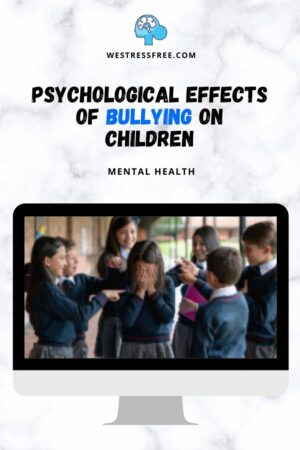
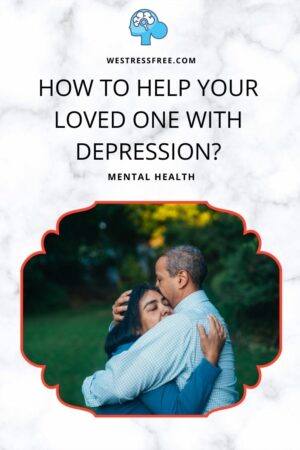

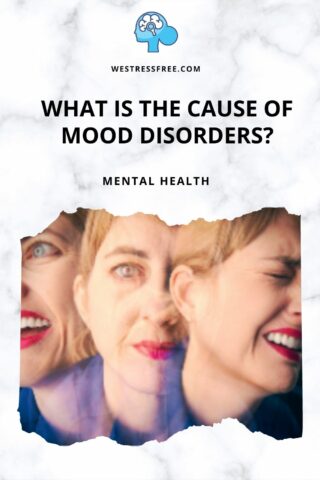
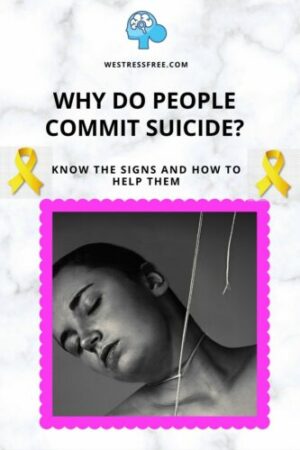


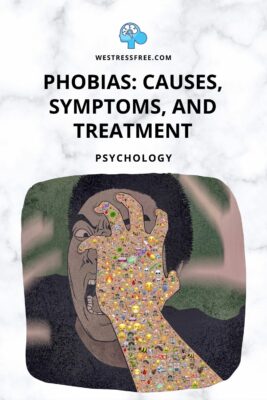

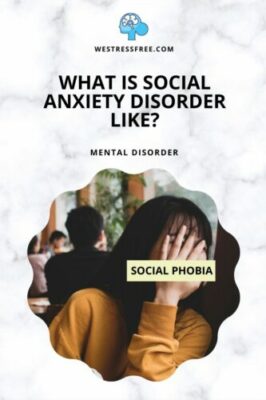




Ferra I think this issue of Bipolar disorder is really important and people should be educated on this. It looks so simple and can be hard to identify I have to confess but I’m sure some of the deaths and suicides and other wrecklace behaviour are because of this disorder.
Thank you for sharing such an eye opener and real informative article my only concern now would be to know how much of mood swings are a sign of Bipolar disorder, I hardly do anything that could cause the disorder and I don’t know of anyone that has the disorder in my family, could possibly be because no one really cares or knows about it.
Hello Donny,
Thank you for taking time to visit my site, read my post and leave a comment. I really appreciate your kind words in your comment! 😃
Glad you found this article is useful.
Stay safe,happy and healthy!
Ferra
Hello and good day! A very well put together article about a mental disorder that is sometimes, has overlapping symptoms with someone that has ADHD. I have a son with ADHD and I can really relate to this article. The article is very concise and pretty much covered everything that needs to be covered.
Hello Lemuel,
Thank you for taking time to visit my site, read my post and leave a comment. I really appreciate your kind words in your comment! ?
I, myself, know someone in my family who suffers from PTSD. At first, I thought that he has bipolar disorder, but as I learn and read more about mental health, turned out he has PTSD. It is challenging at times but they are our family and we love them. So when anxiety or any mental episode comes, they need us more than ever. I am sure you are doing such a great job caring for your son.
Stay safe,happy and healthy!
Ferra
Hi Ferra!
This an incredibly detailed post on bipolar disorder. I think this is a subject that we all need to learn about in order to check ourselves and help other people around us. Especially in Africa, were in our culture when someone has mental health that person is treated like a Paris or the devil. We don’t have that reflex to say that this is a disease that can be cured. I have my uncle who is displaying such symptoms of bipolar disorder, he has serious major depressive episodes and change of moods.
I am going to share your post with my family and friends. I hope we can find a good practician knowledgeable, who will help him improve and adapt to his condition.
Thanks
Hello,
Thank you for taking time to visit my site, read my post and leave a comment. I really appreciate your kind words in your comment!
Glad you found this article useful. Hope you can find a professional psychiatrist or psychologist who can help your uncle be better.
Stay safe,happy and healthy!
Ferra